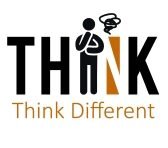Evidence-based decision-making guides firms in unexpected environments. It’s a game-changer that lets firms go forward with laser-like, data-driven precision. Imagine making every strategic choice with the confidence of a well-informed master chess player. This is evidence-based decision-making, which helps organizations manage uncertainty, seize opportunities, and ensure long-term growth and innovation. This technique has several benefits, and we’ll explain how it can boost your company’s strategy here.
Data-Driven Insights
Thorough data collection and analysis underpin evidence-based decision-making. Data gives firms a lot of information about their operations. Businesses may better understand market trends, customer behavior, and internal processes by collecting data from surveys, focus groups, and internal measures of success. With these realizations, decision-makers may avoid emotional or intuitive snap judgments and instead use objective facts.
Improved Accuracy
Fact-based and statistically researched decisions are more likely to be right. Financial management may reduce financial losses by allocating investments more efficiently using evidence-based judgments. This implies firms are less likely to make expensive errors that might hurt their finances and reputation.
Enhanced Risk Management
Smart moves usually carry some risk. Evidence-based decision-making helps organizations assess and manage these risks. Comprehensive risk assessments and data analysis may prepare organizations for potential challenges. With this insight, firms may avert these risks and meet their strategic objectives. Risk management in healthcare is crucial for patient safety and regulatory compliance.
Better Resource Allocation
Strategic decisions often include allocating limited resources like time, money, and people. Evidence-based decision-making helps organizations allocate resources by identifying high-return activities. This maximizes production by using the company’s resources properly. Data-driven decisions may help project managers choose which projects are most likely to succeed.
Measurable Results
Decisions based on evidence are quantifiable by definition. Organizations may set up transparent Key Performance Indicators (KPIs) to monitor progress and results when decisions are grounded on facts. They can now see how well their plans are working in near real-time. Organizations may quickly react and make course corrections if KPIs are not reached or if concerns develop rather than waiting for severe problems to appear. To improve the efficiency of advertising efforts, for instance, marketers may monitor their results in real-time and make modifications as needed.
Stakeholder Confidence
Organizations that show they are dedicated to using data to make decisions earn the respect of their stakeholders, such as consumers, investors, and staff. Stakeholder confidence in an organization’s ability and honesty rises when choices are made openly and honestly in light of available data. Better investor relations, more devoted customers, and enthusiastic staff for new strategies are all possible results of establishing trust. Evidence-based decision-making may boost stock prices and investor confidence in publicly listed corporations.
Competitive Advantage
Keeping one’s firm one step ahead of the competition is essential in today’s fast-paced business climate. By allowing businesses to swiftly adapt to shifting market circumstances and customer preferences, evidence-based decision-making gives them an advantage. When companies improve their capacity for change and innovation, they strengthen their grip on market leadership. This is especially crucial in the IT sector, where innovation and consumer tastes move at a breakneck pace.
Long-Term Sustainability
Successful long-term development demands a strategic vision. Evidence-based decision-making may help companies achieve long-term objectives and sustain principles. Quick solutions or approaches that boost production but endanger the organization are discouraged. Long-term success in healthcare and environmental preservation depends on a company’s public image and consumer trust.
Enhanced Customer Satisfaction
Using data to make strategic choices may help businesses understand consumers’ demands. Customer actions, attitudes, and market trends may help organizations create goods and services that meet consumer needs. Meeting expectations boost customer happiness. Customers who enjoy a company’s products or services become loyal and promote it.
Regulatory Compliance
Many areas are raising standards and rules, making compliance necessary. Systematic, open, evidence-based decision-making may help organizations comply with legislation. The company may avoid severe and expensive legal and regulatory concerns by taking this measure. Banking and healthcare are highly regulated businesses that need compliance. Companies may verify they’ve met standards through evidence-based decision-making.
Increased Employee Engagement and Productivity
Evidence-based decision-making boosts employee engagement and productivity. When workers realize that their company uses data and appreciates their opinions, they feel trusted and involved. This motivates workers since their job is essential and valued. Data-driven choices may also identify process changes or training needs, improving staff productivity. Engaged and productive workers boost company performance and reduce attrition.
Continuous Learning and Improvement
Organizations foster continual learning and growth via evidence-based decision-making. Decisions based on data and quantifiable outcomes show which strategies and efforts succeed. This knowledge inspires businesses to adapt, learn, and iterate. By frequently examining and analyzing data, firms may improve tactics, innovate, and stay ahead of trends and difficulties. Long-term success requires this cycle of learning and development to keep firms nimble and adaptable.
Efficiency and Cost Savings
Evidence-based decision-making may save costs and boost efficiency. Data analysis helps firms find unused resources and cost-cutting opportunities. This may entail improving supply chains, simplifying operations, or removing unnecessary tasks. Data might also identify cost-effective alternatives or efficiency-boosting solutions. Cost-cutting methods boost the company’s finances and free up funds for strategic investments.
Enhanced Creativity and Innovation
Evidence-based decision-making may boost organizational creativity and innovation, contrary to popular belief. Data on market trends and client preferences might inspire new products and services. Data can also highlight market gaps and innovation needs. Organizations may gain a competitive edge and market differentiation by using data-driven insights and creative thinking to solve real-world problems.
Ethics and Responsibility in Decision Making
Evidence-based decision-making encourages ethical and responsible choices. Organizations that use data and evidence are less likely to favor short-term advantages over long-term ethics. Ethics, corporate social responsibility, and environmental sustainability are included. Data may illuminate ethical implications and help firms make socially and ecologically acceptable decisions. This improves the company’s reputation and promotes ethical and sustainable business practices. Maintaining stakeholder trust and credibility in today’s socially aware environment requires ethical decision-making.
Bonus Tip: Get Professional Help
Professional help is recommended for using evidence-based decision-making in your organization’s strategy. Hire data analysis, market research, and strategic planning expertise. Working with experts that have successfully implemented evidence-based techniques may help your company gather and evaluate relevant data to make evidence-based choices. This relationship will help your company handle uncertainty, grasp opportunities, and expand long-term through data-driven tactics.
Conclusion
Evidence rather than speculation may affect your company’s long-term success. Data-driven insights increase accuracy, risk management, resource allocation, outcome evaluation, stakeholder confidence, competitive advantage, and sustainability. Market research and strategic decision-making solutions may benefit from evidence-based decision-making. Your knowledge might help any company succeed in today’s competitive business environment.


